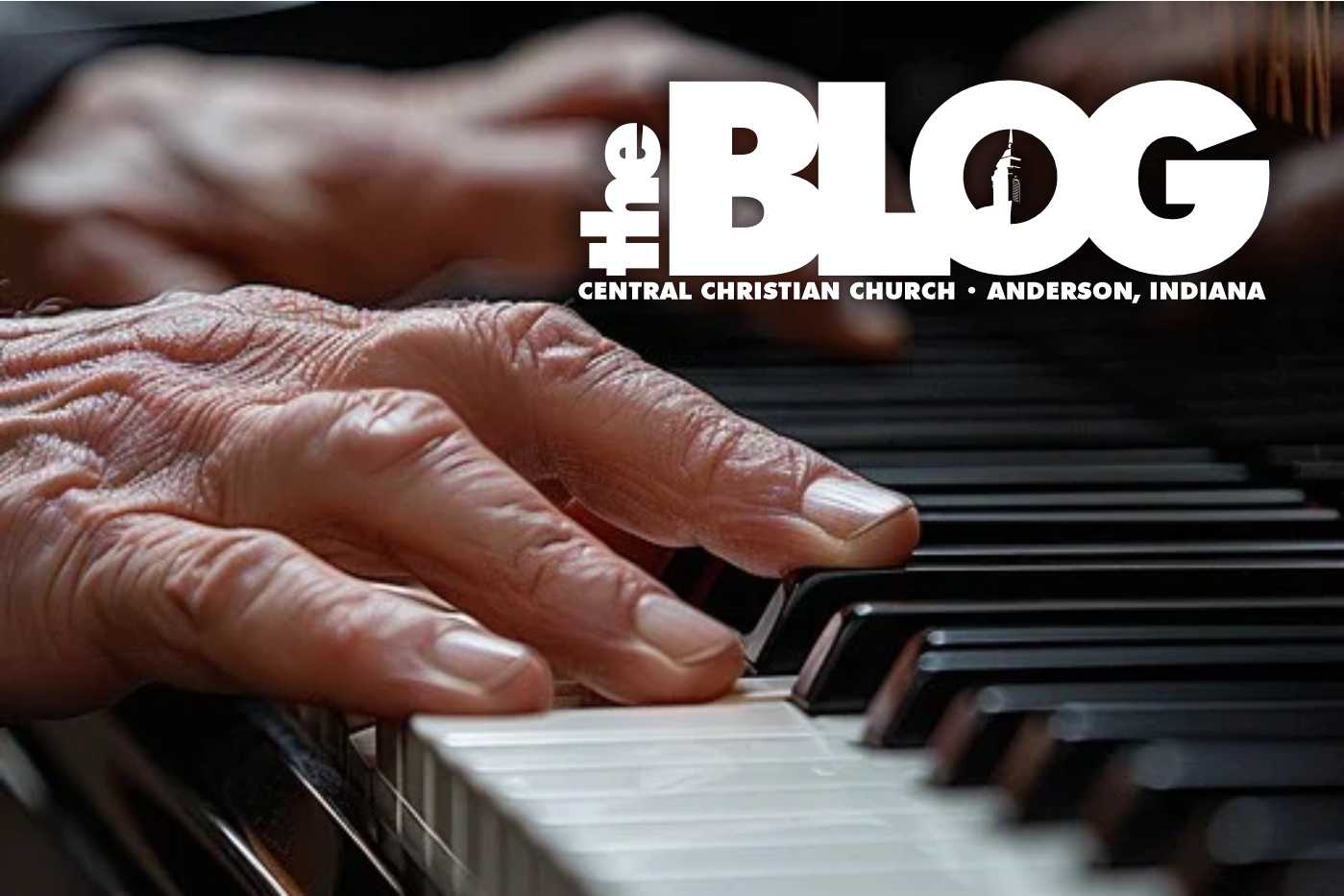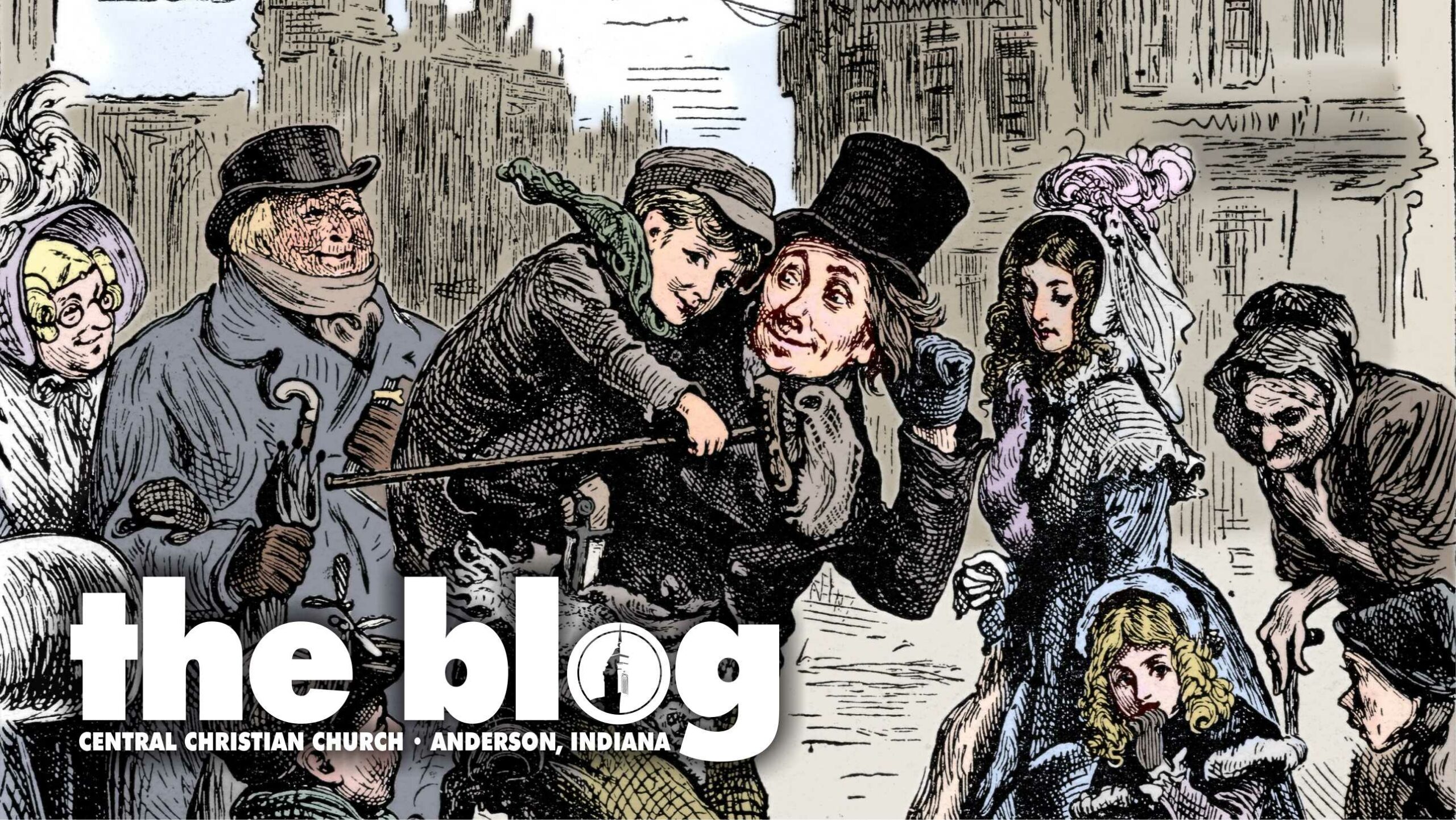
A BLOG by Pastor Ken Rickett
Let me be blunt. There is a world of difference between our way of life and that of the New Testament. Today we have jet planes that can take us halfway around the globe (12,000 miles) in a few hours but in New Testament times people had to walk everywhere and they were lucky to cover 15 miles a day! Today, our own automobiles can reach speeds of over 100 mph but the fastest vehicle in New Testament times was a horse-drawn chariot! There are just no similarities between the two ways of life! Yet, do we call those days a “simple life.” No! A thousand times no! Life in those days was just as much a struggle as life today. Life was just as unfair then as it is today, but in different ways.
In Luke, Chapter 10, Jesus sent 70 disciples in groups of two people into cities for the purpose of preparing the people to receive Jesus when Jesus came into those cities.
He gave some odd, if not weird instructions, “carry no purse, nor note cards, nor extra shoes, and salute no one. If you enter a house, say ‘peace be unto this house’ and if your peace is rejected then leave that house. Eat and drink what your hosts offer you. Stay there until your work is done and do not go from house to house. Say to the people wherever you go ‘the Kingdom of God is here’. But if you go into a city and they do not welcome you, shake the dust off your feet and move on, but let them know that regardless of the lack of acceptance, that the Kingdom of God will still come.”
In the “plain English” we speak today, and in our way of life today, what, exactly, would Jesus be telling his disciples (us) to do in order to bear witness to the Gospel?
“Carry no purse” means “Don’t carry extra money or a bunch of credit cards!” Why? Well, the next time you drive through a small town where you don’t know a soul, stop and walk the streets and go into a couple of stores. First impressions are HUGE among the locals! If the perception is that you’ve got money to spend (and you are a stranger to them), they will welcome your dollars and likely have little or no desire to sit down and talk a while with you under the shade of the big oak tree in the town square.
“Take no note cards” means just that! In other words, quit worrying about whether you “say it right” or “whether you might leave something out that you should have said.
There is no reason to engage in the stilted language of “religious terminology”, but to converse relationally. Several times over my career as a minister, well-meaning people have knocked on my door to invite me to their church (not a problem) or to ask if I was a Christian (also not a problem), but scripts are a problem. Let me illustrate. Years ago, while I was completing the seminary, Della, my wife, babysat for a physician and her husband in their home. One day I did not have class and I was with Della that afternoon. The doorbell rang, and it was someone from a church of a different denomination. Della answered the door, and she was asked if she was a “believer?” Her reply was “of course! My husband is in the seminary to become a minister” to which the reply was, “BUT is he saved?” Della said, “I’m sorry. I have to go” and shut the door.
Scripts put people on the defensive, and usually brings a quick closure to what could have been a productive conversation. Scripts also assume that the meaning of religious words and phrases are known by the general public–even if a person has never read a Bible Story or heard a sermon. No wonder Jesus said, “No pre-scripted conversations, please!”
“Don’t take an extra pair of shoes” is puzzling advice, so I will put it in plain language. If the extra pair of shoes is patent-leather Guccis, in a community in which the streets are full of sand, then it is obvious that such shoes will testify to a wealthy life and therefore, these extra shoes serve no real purpose other than to impress rather than to find common ground. Of course, it goes without saying that “extras” imply that the messenger has been blessed far beyond what anyone else dares to expect from God.
“Salute no one!” means “seek no favors!” To seek favors, one has to assume that another person has something to offer that would otherwise be unavailable. Can you imagine a disciple of Jesus who curries the favor of a Roman official while on this mission? Do not think of “salute” in this instance as recognizing military rank; rather, salute means to impress inappropriately.
“Peace be unto this house!” If your peace is rejected, then leave. This is not “wearing out your welcome” but rather “peace” is a “comfort zone” that one detects upon entering the home of a stranger. Not long ago I was visited by a couple of Mormon missionaries. “May we give you a copy of our book? “No,” I replied, and the peace was uneasy. Then I said, “My hobby is genealogy, and I must admit that I have had some success in using Mormon genealogy records.” Ah! Conversation flowed with less awkwardness. Peace? Nevertheless, I affirmed my long association with the Christian Church (Disciples of Christ), and they soon went on their way. There was no “peace” that would foster hours of conversation. But had my visitor been Pastor Rick or perhaps you! Peace would come instantly!
“Eat and drink what the host offers you!” In other words, don’t get up 30 minutes early and run to McDonald’s to get your breakfast and coffee–and eat and drink iin front of your hosts! Or don’t sneak out to the steak house in the afternoon and then later decline the meal prepared by your hosts! Believe me, insults will not be tolerated!
“Do not go from house to house.” Accept the hospitality of your hosts! In the summer of 1971, between completing college in May and beginning the seminary in September, I served the summer as a Youth Minister at a church in Rural Hall, NC. I knew in advance that I would be spending the summer in 3 different homes over the 10-week summer. Thankfully, the minister of the church gave me excellent advice, telling me to refrain from accepting last-minute offers for a meal without allowing time for my host family to adjust their meal preparation because providing meals were a part of their obligation to host me. But I was free to accept a meal in another home if arrangements with the host family were made, let’s say, at least the day before my invitation. Wise advice, indeed!
“Tell everyone you meet that the Kingdom of God is here (near)!” I have a friend with whom I went all four years at Mars Hill University. He went to one seminary, and I went to another. We lost touch for many years, then I went to a General Assembly in which he, George Bullard, had led a two-day seminar just prior to the opening of the General Assembly, also sponsored by the Christian Church (Disciples of Christ). George was a church consultant who kept abreast of trends and changes happening across America, in regard to religious and church life. Of all his insights about the decline of attendance in congregational life of many denominations, he was adamant about this one: “Preach the Kingdom!” If we preach the “church” (even though it is the Body of Christ), then we invite people to see its shortcomings as well as those of church members. But if we preach the Kingdom, the coming of God’s Rule on earth as revealed through Jesus Christ who brings the Kingdom to earth that God’s will be done as it is in heaven, then we understand that God is constantly bringing God’s eternal rule on earth through redemption and love. Perhaps the criticism of the church as a “just one more institution that works through ‘proper channels’” would be blunted by the image of an imperfect but constantly emerging Kingdom of God on earth that reaches perfection in the fulfillment of the Kingdom when a new heaven and earth are created. Which sounds more exciting to you–an invitation to “enter and explore the Kingdom of God on earth” or a plea to “attend church every Sunday?”
“If you go into a city and they do not welcome you, shake the dust off your feet…but let them know that the Kingdom of God is still coming!” O, such a misunderstood verse!
Shaking the dust off one’s feet as one leaves the city is not a condemnation because the message “the Kingdom of God is coming” doesn’t change. So, what does this admonition mean? First, it means, “if you feel ineffective in that place, move on, and perhaps come back later.” Nothing creates a void in life like a feeling of “spinning wheels!” So don’t burn out on sharing the message of the Kingdom but find fertile soil.
Second, “shake the dust off your feet” means to move on and not carry with you the disappointments and hurts and agony of an unproductive environment. Recognize that you can go back later or that someone with a different personality or approach may be more effective. This advice has little to do with the city, but much to do with one’s own renewal and readiness for continued ministry and mission. “Shaking the dust off” is not a calling down of God’s fury upon the city because…
…the message that God’s Kingdom is coming stands before that city with hope and promise!

















